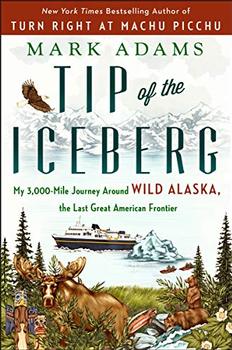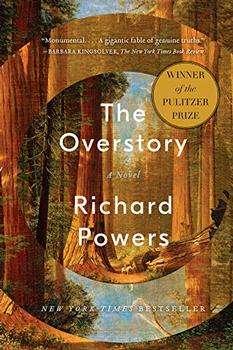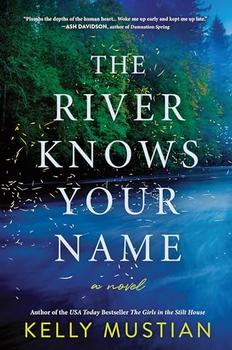Summary | Excerpt | Discuss | Reviews | Beyond the book | Read-Alikes | Genres & Themes | Author Bio

John Jacob Astor and Thomas Jefferson's Lost Pacific Empire: A Story of Wealth, Ambition, and Survival
by Peter StarkIn 1810, John Jacob Astor sent out two advance parties to settle the wild, unclaimed western coast of North America. More than half of his men died violent deaths. The others survived starvation, madness, and greed to shape the destiny of a continent.
In the tradition of The Lost City of Z and Skeleton in the Zahara, Astoria is the thrilling, true-adventure tale of the 1810 Astor Expedition, an epic, now forgotten, three-year journey to forge an American empire on the Pacific Coast. Peter Stark offers a harrowing saga in which a band of explorers battled nature, starvation, and madness to establish the first American settlement in the Pacific Northwest and opened up what would become the Oregon trail, permanently altering the nation's landscape and its global standing.
Six years after Lewis and Clark's began their journey to the Pacific Northwest, two of the Eastern establishment's leading figures, John Jacob Astor and Thomas Jefferson, turned their sights to founding a colony akin to Jamestown on the West Coast and transforming the nation into a Pacific trading power. Author and correspondent for Outside magazine Peter Stark recreates this pivotal moment in American history for the first time for modern readers, drawing on original source material to tell the amazing true story of the Astor Expedition.
Unfolding over the course of three years, from 1810 to 1813, Astoria is a tale of high adventure and incredible hardship in the wilderness and at sea. Of the more than one hundred-forty members of the two advance parties that reached the West Coast - one crossing the Rockies, the other rounding Cape Horn - nearly half perished by violence. Others went mad. Within one year, the expedition successfully established Fort Astoria, a trading post on the Columbia River. Though the colony would be short-lived, it opened provincial American eyes to the potential of the Western coast and its founders helped blaze the Oregon Trail.
Many readers avoid non-fiction because they feel it's too dry, too devoid of action; until recently I was one of them and so I do understand this reaction. I would wager that Astoria will go a long way toward changing many minds about the genre. The account reads like the best of action-adventure novels. Peter Stark does readers a very large service in reminding us about this extraordinary and important piece of North American history. I can't recommend Astoria highly enough for anyone interested in the colonization of the American West...continued
Full Review
(897 words)
This review is available to non-members for a limited time. For full access,
become a member today.
(Reviewed by Kim Kovacs).
The mouth of the Columbia River – where it meets the Pacific Ocean at the state border between Oregon and Washington – was John Jacob Astor's intended location for a trading center.
 The Columbia River flows for 1,243 miles from its source at Columbia Lake, British Colombia through Washington and Oregon. It is the largest river flowing from North America into the Pacific. It is the fourth largest river by volume in North America (behind the Mississippi, St. Lawrence and MacKenzie rivers) with a watershed that drains an area the size of France (259,000 square miles) from seven states and British Columbia. The Columbia's largest tributary is the Snake River, which travels over a thousand miles from its source in Yellowstone...
The Columbia River flows for 1,243 miles from its source at Columbia Lake, British Colombia through Washington and Oregon. It is the largest river flowing from North America into the Pacific. It is the fourth largest river by volume in North America (behind the Mississippi, St. Lawrence and MacKenzie rivers) with a watershed that drains an area the size of France (259,000 square miles) from seven states and British Columbia. The Columbia's largest tributary is the Snake River, which travels over a thousand miles from its source in Yellowstone...
This "beyond the book" feature is available to non-members for a limited time. Join today for full access.

If you liked Astoria, try these:

by Mark Adams
Published 2019
From the acclaimed, bestselling author of Turn Right at Machu Picchu, a fascinating and funny journey into Alaska, America's last frontier, retracing the historic 1899 Harriman Expedition.

by Richard Powers
Published 2019
"The best novel ever written about trees, and really just one of the best novels, period."
—Ann Patchett



A book is one of the most patient of all man's inventions.
Click Here to find out who said this, as well as discovering other famous literary quotes!